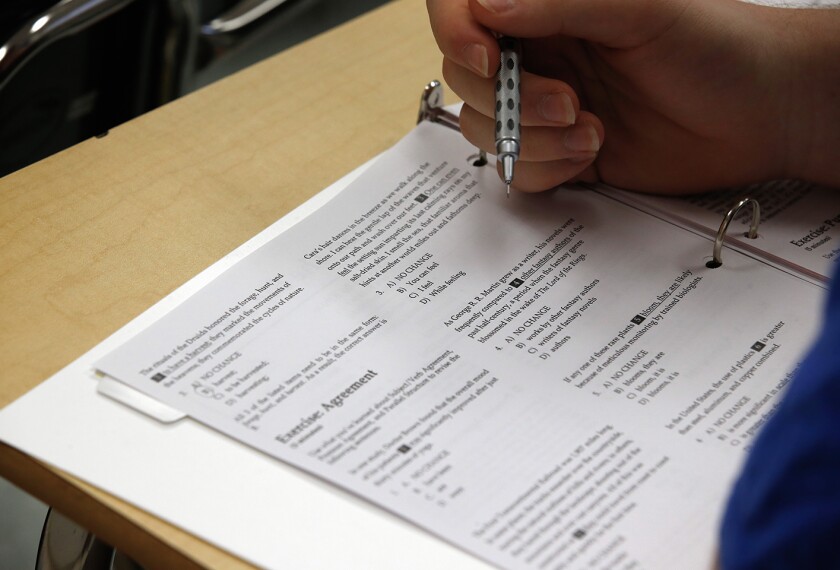Only 15 to 22 countries participated in the Trends in Mathematics and Science Study in 1995, 1999, and 2003. Of those, the nation with the biggest gains in student achievement over that time period was tiny Lithuania, a former Soviet republic on the Baltic Sea.
At the 8th grade level, Lithuanian students’ average math scores improved 10 points from 1995 to 1999, and a whopping 20 points from 1999 to 2003. What accounted for the improvement?
Read the related story,
Jolita Dudaité, a doctoral student at Lithuania’s Kaunas University of Technology, tried to answer that question by comparing the math-achievement gains made by that country’s 8th graders with other changes taking place in students’ schools and home lives over the same period.
She noted that the biggest test-score increases came as the newly independent nation was reshaping its education system. As part of those reforms, the country’s math textbooks, curricula, and teaching goals were rewritten to better reflect the topics and teaching philosophies embodied by the international tests. In fact, Lithuania’s teaching goals, revamped to emphasize mathematics literacy, were almost an exact copy of the TIMSS framework, according to Ms. Dudaité, who presented her findings this month during an education research conference at the Brookings Institution in Washington.
In addition, she found, multiple-choice questions, conspicuously absent from Lithuanian textbooks in 1995, had become a common feature of the textbooks used by 8th graders eight years later. Students’ socioeconomic status, in comparison, worsened from 1995 to 2003.
Thus, Ms. Dudaité concluded that the changes in mathematical content, teaching goals, and textbook formats—and not changes in 8th graders’ home environments—had played a key role in the test-score improvements.
But Jan-Eric Gustafsson, an education professor at Sweden’s University of Gothenburg who attended the Brookings conference, suggested yet another possible explanation for the learning gains.
In a separate study looking at changes in the average ages of TIMSS test-takers from one testing year to the next, Mr. Gustafsson found that Lithuanian 8th graders taking the tests in 2003 were an average of 8½ months older than their 1995 counterparts. That was the biggest age change of any country except neighboring Latvia, which also saw big increases in 8th graders’ math scores over successive TIMSS testing waves.





